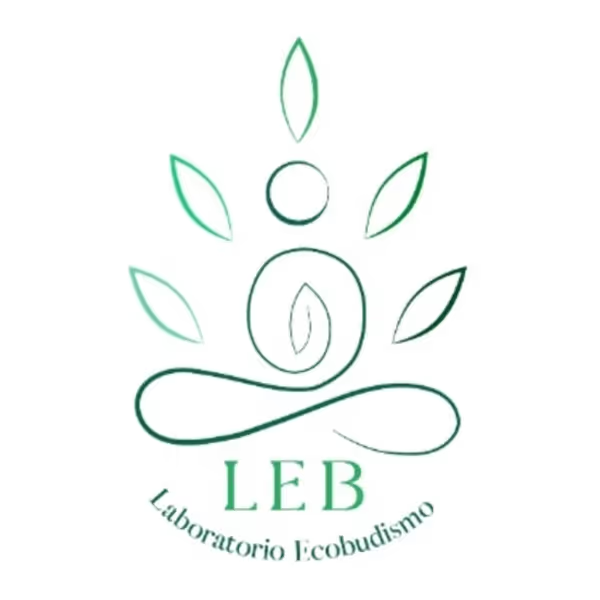
In March 2024, a group of people met to analyze the concept of ecology in Buddhism, starting with the study of some conceptions and ideas transmitted in the book Ecodharma by David Loy. This meeting will be the first podcast of the LEB Ecobuddhism Laboratory, an entity that was born from what was called the First Days of Buddhism and Ecology in the Spanish-speaking world, held in October 2023, and which were entitled “Ecological Buddhism and Climate Emergency, Moving Towards New Interpretations and Actions”.
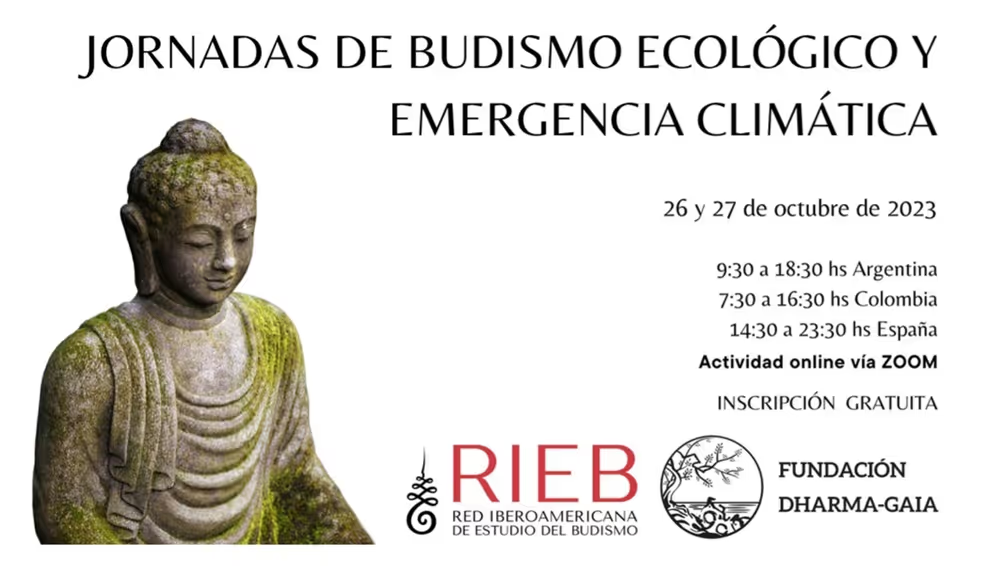
LEB is a sister entity of the Ibero-American Network for the Study of Buddhism and the Dharma Gaia Foundation and its purpose is to make visible and support the projects, studies and concrete actions that are being carried out on Buddhism and ecology, with special emphasis on Latin America and in connection with Buddhist entities in Spain. In addition, LEB emerges as an executing, collaborative, creative and participatory network that allows us to analyze new interpretations and ideas, based on Buddhist principles, and to interact with various cultural, scientific, academic, educational, and so on, entities that enrich dialogue and the execution of ecological projects and programs in the sanghas.
The fact that LEB's first activity was to bring together some of its members, to address the concept of ecology, goes beyond a theoretical or ontological reflection; the intention has an intimate relationship with how to be and do ecology in Buddhism and from there, how we understand, learn, learn, learn, interact with other knowledge or traditions and carry out concrete actions that would bring about a change in our lifestyle. In addition to other activities, such as the LEB Conversations, which consist of talks on a specific topic, where the guests come from the Buddhist area and from other traditions or entities. This was the first discussion, which was entitled “Bioconstruction: dialogue between the Aymara and Buddhist worlds” (see https://www.laboratorioecobudismo.com/charlas/primer-conversatorio-bioconstruccion-en-el-mundo-aymara-y-budista). The purpose of the discussions is that the same topic unites two different worlds, which meet in a dialogue of resonance and learning to awaken new ideas or practices and ways of inhabiting the earth from ancient traditions, without degrading ecosystems, protecting and preserving the environment.
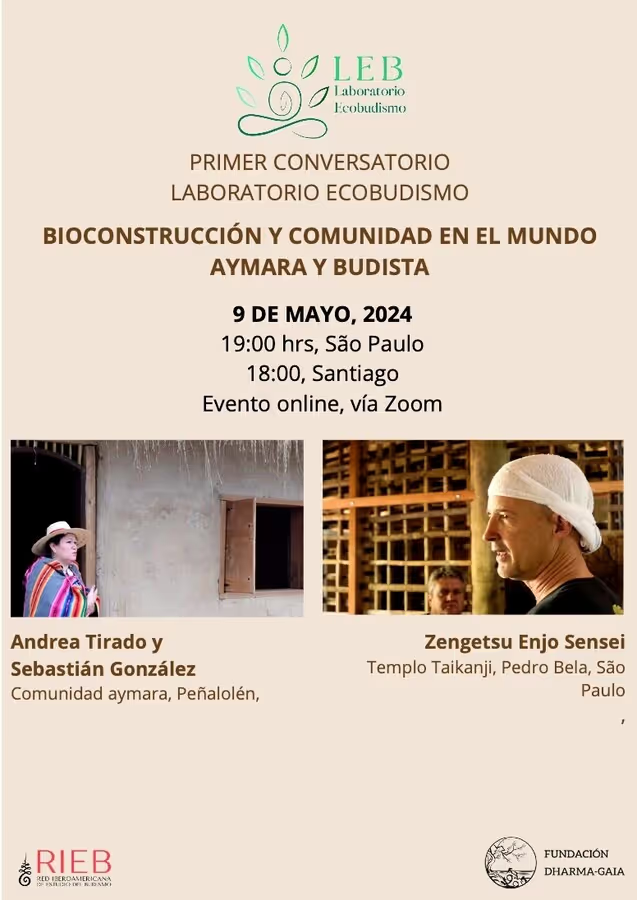
LEB intends to develop new readings or invitations to people of different perspectives, who are not necessarily speaking to us from Buddhism, but from different disciplines, cultures, traditions, etc., which we can put into dialogue with the various Buddhists, their doctrines and practices, as well as with current projects, which affect nature in the Latin American region.
In addition to the podcasts, LEB is committed to creating a map that will show and add the ecological projects of Buddhist centers in Latin America with regard to protection, preservation, environmental awareness or sustainable lifestyles over time. In addition to this, articles, discussions and other activities, which will be disseminated on the LEB page that you can now visit: www.laboratorioecobudismo.com
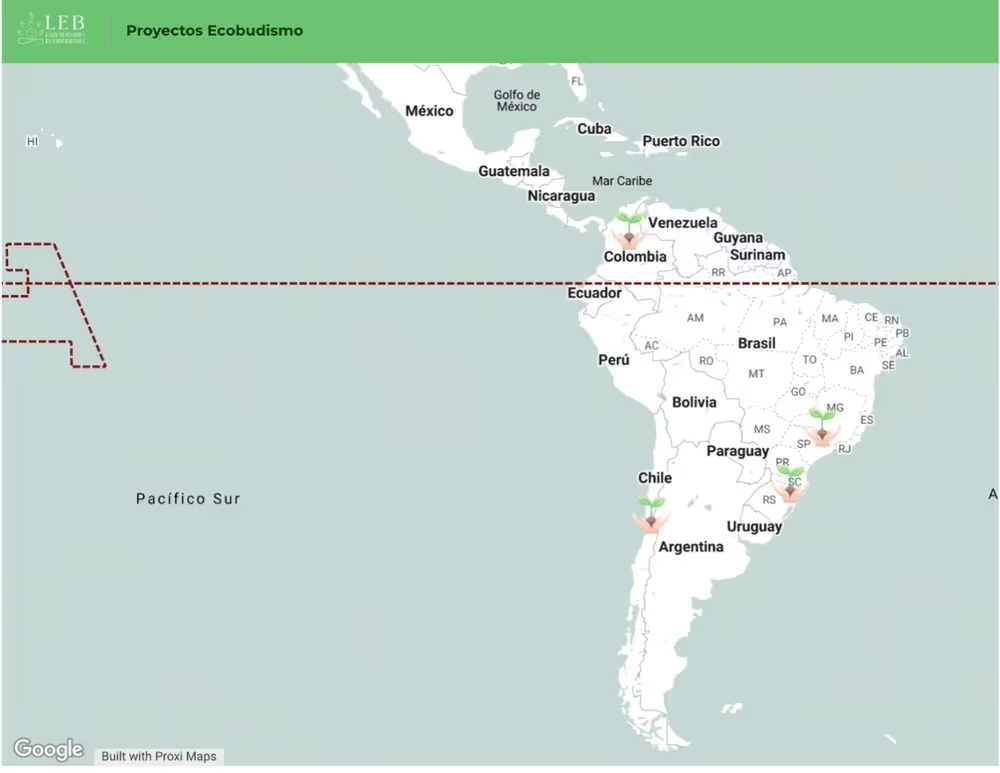
And why all this? Because the call is urgent... Although global warming and the climate crisis are already part of the global rhetoric and are being manifested with natural catastrophes and human migration, lifestyle, consumerism, detention and concrete action in the face of this situation remain minimal. We can talk about dozens of international conventions, treaties and conferences on the environment, but implementation is often limited, cumbersome, hindered by world economies and, finally, hindered by the eternal struggle of powers, selfishness, and of not wanting to change our lifestyles. This is mainly because so-called “sustainable” policies aim much more at a “fine” style and not a thick one (as defined by Susan Baker, 2022). Because being “sustainable” has become a business and not a real change in lifestyle and of stopping exploiting nature; as Joshua Frank says in his article in Relience), regarding the announcement by the governor of California, who said that by 2035, all California vehicles will be zero-emission: “even if we change the type of vehicle we drive, we will not change our lifestyle to adapt to a future with climate problems” (https://www.resilience.org/resilience-author/joshua-frank). General environmental policies are not addressing the root of the problem. Following what Frank mentions and based on the example of lithium, today called “white gold”, an immense amount of minerals will be needed to produce millions of zero-emission cars, which are still underground: “if Californians continue to buy vehicles at the same rate as in 2023, the amount of lithium needed will exceed 113 million kilograms (249 million pounds) per year from now on,” Frank points out. This figure only points to California, imagine what it would be like for all of China...
The situation is very worrying and we would like Buddhists to focus much more on the context of the climate crisis, creating networks, preservation and protection projects, that not only remain in recycling actions (which is good, but we know that it is not the solution), nor to individualist theories of being an ecological Buddhist, but to take bigger steps, as are already doing some sanghas that LEB is presenting in its project map. Buddhism and its capacity to adapt to the contexts in which societies live is profound and can awaken in people the “ecological state”, which allows us to observe ourselves as ecosystem beings in intimate interaction with other beings. It seems to me that only from this sensitivity (which can also be found in other currents or traditions, such as the original peoples of Latin America) is it possible to understand and address the real need in the face of ecosystem damage.
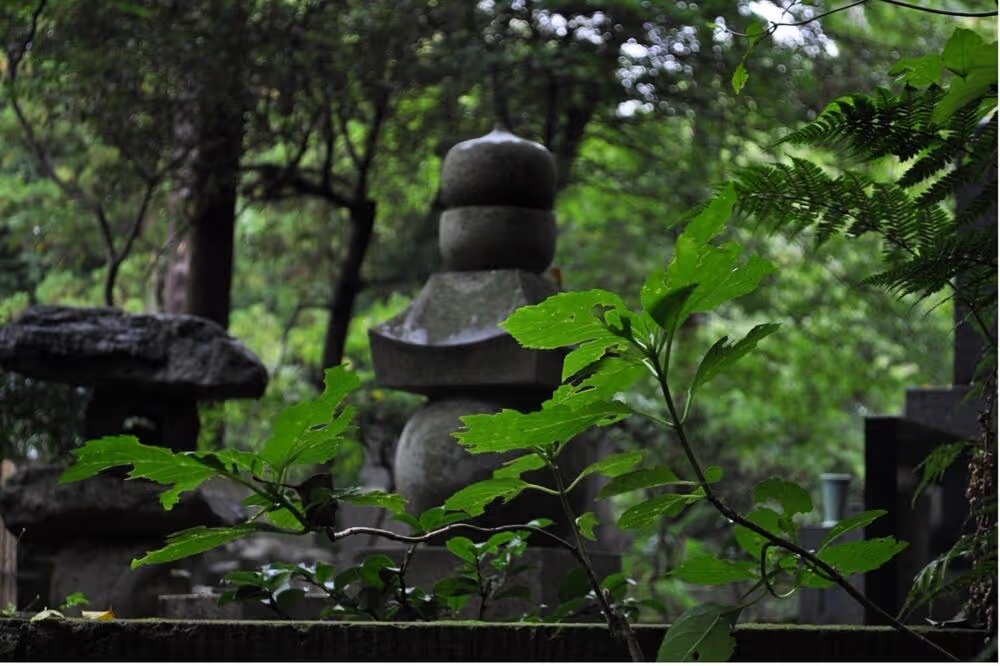
Currently, the core of LEB is composed of a group of people dedicated to Buddhist studies, environmental projects or to contributing to the development of Buddhism, either from the academic world or in other public and private spaces. Those of us who participate in LEB are also interested in analyzing different perspectives, which enter into dialogue with the sanghas and vice versa. Buddhism and its environment have constructed or interpreted ecological rhetoric, which in many cases is the theoretical basis for environmental projects carried out in different countries. But it has also been observed that there is still much that can be done, not only through action, but also in the analysis of our own Buddhist interpretations, from deconstructing to building new forms and ideas that allow us to remember our ecosystem relationship with other species.
We invite everyone who wants to join, contribute, or simply learn about LEB. Everyone is very welcome!
Link:
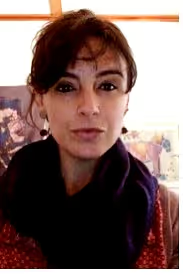
María Elvira Ríos
It is Magister and PhD in Asian and African Studies, with specialization in China, from the Center for Asian and African Studies of El Colegio de México (2015). His publications deal with themes of Buddhism, language and Chinese culture. He is currently a Fondecyt postdoctoral candidate (No. 3190076, 2019-2021) at the Institute of Aesthetics of the Pontifical Catholic University of Chile, with the research “The ecological reflection of Chinese Buddhism”. She is a member of ALADAA CHILE and collaborator of Buddhistdoor in Spanish.










